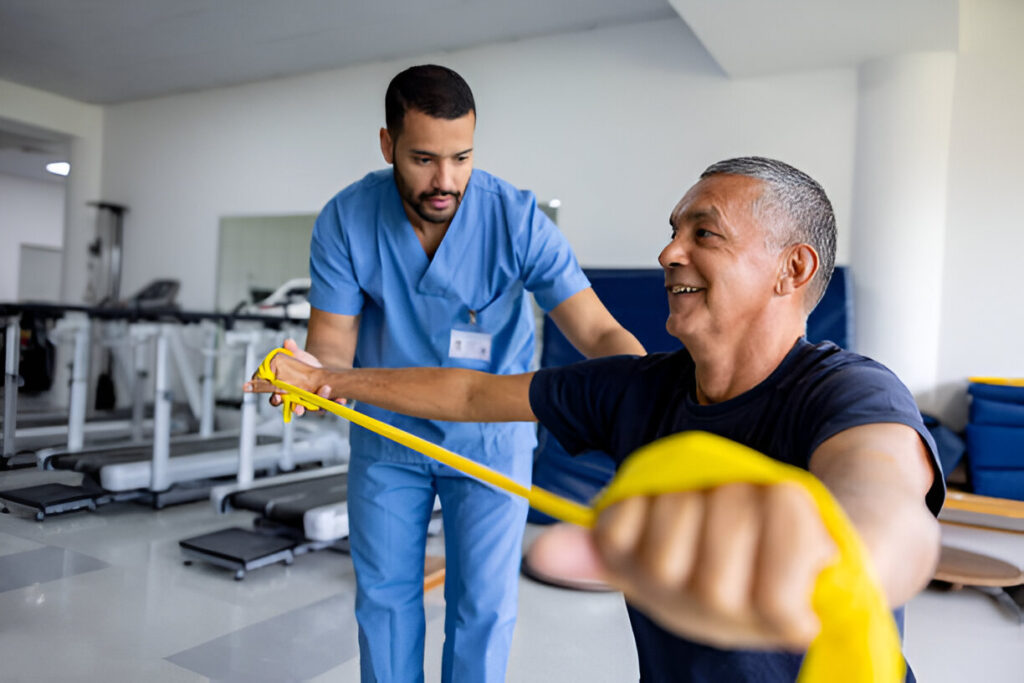The road to recovery from addiction is often a long and winding one, marked by both small victories and significant challenges. It is a path that requires courage, commitment, and continuous self-reflection. Embarking on this journey not only means breaking free from the chemical shackles of substances but also remaking oneself and rediscovering a life of possibility and purpose. For those ready to turn over a new leaf, recovery offers a chance to rebuild a life based on new-found strengths and values. Keep reading to learn more about the transformative journey from addiction to renewal.
Walking The Path Of Recovery: A Journey From Addiction To Renewal
The first steps on the path of recovery are often the most crucial. Admission of the problem and the decision to seek help are not just acts of courage but are the foundations of the journey ahead. For many, this involves detoxification, a process that can be both physically and emotionally taxing but is necessary for clearing the body of addictive substances.
Once the initial hurdle is overcome, the real work begins. Recovery is not just about abstinence but also about healing from the inside out. This healing journey is individual and unique, leading to personal growth, self-discovery, and a new way of living. It is a daily commitment to choose health and well-being over the temporary escape offered by drugs or alcohol.
During this transformative period, it becomes evident that addiction was not just a physical dependence but a coping mechanism for deeper issues. Addressing these underlying problems is key to ensuring a successful recovery. Therapy, support groups, and addiction therapy services become valuable resources in tackling these complex emotional landscapes.
The Role of Therapy and Counseling in Sustaining Recovery
Therapy and counseling are instrumental in addressing the psychological and emotional aspects of addiction. These professional services provide a safe space to explore the root causes of substance abuse and develop coping strategies for dealing with life’s challenges. Through ongoing therapy, individuals are equipped with tools to manage triggers and prevent relapse, ensuring the sustainability of their recovery.
Finding the right type of therapy is essential, as each person’s journey is unique. For some, it may be individual counseling or group therapy, while others may find solace in family therapy or specialized programs suited to their needs, such as those offered by dedicated womens health NP. An experienced therapist can guide this selection process, tailoring the approach to fit the individual and their current stage of recovery.
Building a Support System: Engaging Family, Friends, and Recovery Communities

One of the core pillars of sustained recovery is the development of a robust support system. The role of family and friends cannot be understated; their encouragement and understanding provide a bedrock of stability in moments of doubt. Open communication and setting healthy boundaries become central themes in these relationships, allowing for mutual growth and healing.
Recovery communities also play a critical role in building a support system. Groups like Alcoholics Anonymous (AA) or Narcotics Anonymous (NA) offer a sense of belonging and a shared understanding of the recovery journey. These communities foster an environment where experiences are exchanged, and collective wisdom is imparted.
In addition to peers in recovery, professional support from counselors, psychologists, and other healthcare providers adds a layer of expertise and guidance. Engaging with these professionals can provide tailored strategies for coping with life’s challenges and preventing relapse.
Embracing New Habits And Hobbies: Filling The Void Left By Addiction

Recovery is not only about ceasing harmful behaviors but also about creating a fulfilling and engaging lifestyle. New habits and hobbies can fill the void left by addiction, providing joy, purpose, and a sense of accomplishment. It is crucial to explore activities that resonate on a personal level and contribute positively to one’s state of mind and physical well-being.
Whether it’s physical exercise, creative arts, or volunteering, new endeavors can bring a sense of excitement and adventure to life in recovery. These activities offer opportunities to learn new skills, meet like-minded individuals, and build confidence. They also function as healthy outlets for stress and can greatly reduce the risk of relapse by occupying the time and attention that might otherwise be consumed by cravings.
As these new practices solidify into routines, they begin to form the structure of a sober life. Incorporating these positive changes requires dedication and patience but is undoubtedly one of the most rewarding aspects of the recovery process.
Altogether, the road to recovery is one of self-improvement and transformation. Overall, those willing to walk this path, engage with necessary support systems, embrace new lifestyles, and utilize therapy, can not only overcome addiction but also craft a meaningful, fulfilling life in sobriety.

